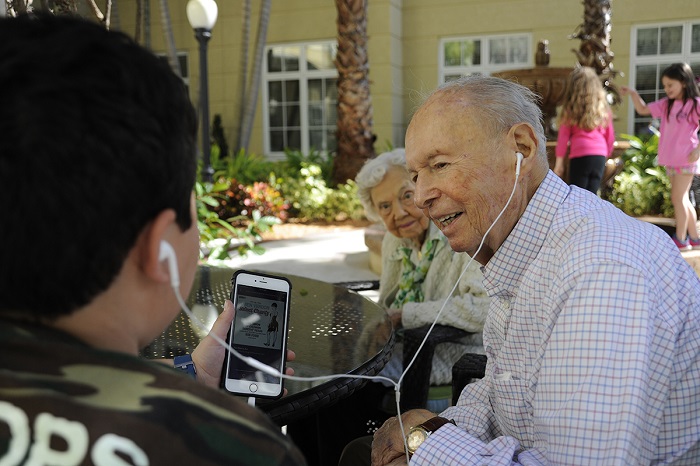For anyone with a close friend or family member affected by memory loss, you know first-hand how this condition can have an emotional impact on your relationship with this person. At times the role of son, daughter or friend can take a backseat to the new role of caretaker.
Depending on what stage of memory loss your loved one is experiencing, this condition can present new challenges in caring and communicating with the individual. Regular activities that you once enjoyed may change and new challenges can present themselves when interacting with this person. Finding ways to engage and care for your loved one will help ease the stress of caretaking and dealing with memory loss.
Tips for engaging with your loved one affected by memory loss:
- Trigger Foods: The familiar smells and tastes associated with certain foods (example – fresh bread) can bring comfort and familiarity to your loved one. Finding out what food(s) this person enjoyed in their past could help determine what trigger foods evoke comfort for the individual dealing with dementia.
- Storyboards: Trying to remember names and faces through old photo albums can be frustrating to someone affected by memory loss. Why not set up a storyboard for them with old photographs and ask them to tell a story (made up or real) about the photos. This approach takes the pressure off the individual to remember names or faces, yet they can seek comfort in looking at old photographs.
- Music: Playing music can engage and influence the mood of an individual with memory loss. Find out what their favorite musicians and genres were in the past to determine the perfect playlist for your loved one.
- Work-related activities: Having a job makes us feel needed and provides a sense of purpose. Take the time to find out what responsibilities this person held at their former job or in the home. Find an activity similar in nature the individual can participate in, assuming the activity is safe and not strenuous.
- Social Activities: For a person with memory loss, trips outside the home can be confusing. However, socialization and interaction are still a much-needed activity for those dealing with memory loss. Reach out to local senior communities or senior centers to see what activities they offer that are specifically designed for seniors dealing with memory loss.
It's important to remember each individual with memory loss has different needs and there is not one single list of activities or tips that will be successful for everyone. It's important to take into consideration the personality and prior interests of the individual when planning activities. Careful planning and a little creativity can play a big difference in engaging with your loved one affected by memory loss.






Comments